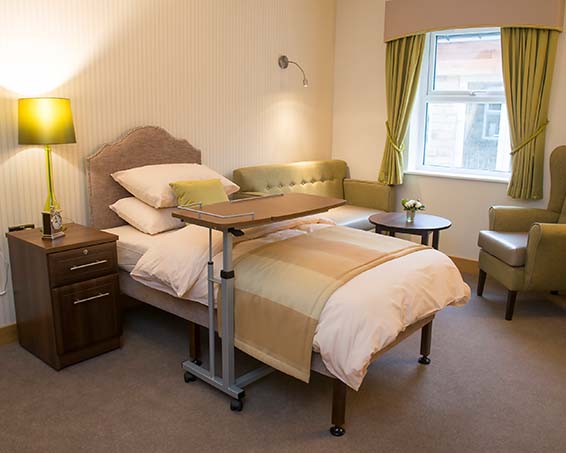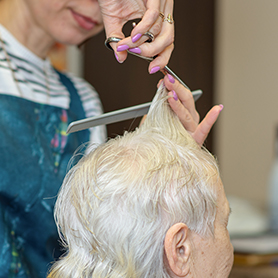Our top focus is to support our residents’ well-being, and we take special care to ensure that their health is taken care of properly. Our care professionals provide around-the-clock care, along with stimulating activities that support our residents’ mental, physical, and emotional well-being.
Masks are no longer required to be worn in care homes, however, our staff continues to work in whichever way makes our residents most comfortable. In line with Government guidance, vaccinations for residents and staff are still going ahead.
There are no longer restrictions to the number of visits per resident though we ask that you make arrangements in advance of your visit to ensure safe visiting practices can be maintained. LFT testing is no longer required, though to protect the safety and well-being of our residents and teams, we will still be screening visitors via our screening record.
In the event of the care home having a Coronavirus outbreak, residents can receive visits from one of their 3 named visitors, only once per day.
Newly admitted residents to a care home who are transferring from an interim care facility or transferring from another care home will no longer need to self-isolate upon arrival if the below requirements are satisfied:
- The person admitted is fully vaccinated, wherever possible
- The care home has taken into account the circumstances at the care home or interim care facility from which they are transferring, prior to admission
- The person is subject to an enhanced testing regime consisting of a PCR test before admission (within 72 hours), a PCR test on the day of admission and a further PCR test 7 days following admission
- The person admitted has no known contact with a person testing positive for COVID-19.
At any time, the decision to not wear face masks can be changed as determined by the Home Manager, company, local or national healthcare agencies. COVID-19 regulations and guidance from the Government, National, and Local Healthcare Agencies may also change. For further information, please click here or contact the Home Manager directly.







